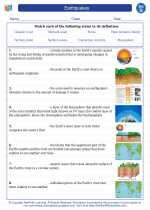Rivers
A river is a large, natural stream of water that flows towards an ocean, sea, lake or another river. They are an important part of the Earth's hydrological cycle and have a significant impact on the environment and human activities.
Formation of Rivers
Rivers are formed through the process of erosion, where water and other natural forces gradually wear away the land, creating a channel for the water to flow through. This can be caused by rainfall, melting snow, or even underground springs.
Characteristics of Rivers
- Source: The place where a river begins, often in the mountains or highlands.
- Channel: The path or bed that a river flows through.
- Tributaries: Smaller rivers or streams that flow into a larger river.
- Mouth: The point where a river empties into a larger body of water, such as an ocean or lake.
- Meanders: Curves or bends in a river's course.
Functions of Rivers
Rivers serve several important functions, including providing water for drinking, irrigation, and transportation. They also support diverse ecosystems and can be a source of renewable energy through hydropower.
Human Impact on Rivers
Human activities such as dam construction, pollution, and deforestation can have detrimental effects on rivers and their ecosystems. It's important to manage and protect rivers to ensure their sustainability for future generations.
Study Guide
- What is the source of a river and why is it important?
- Explain how meanders form in a river.
- Discuss the various functions of rivers in human societies and the environment.
- What are some of the negative impacts of human activities on rivers?
[Rivers] Related Worksheets and Study Guides:
.◂Science Worksheets and Study Guides Seventh Grade. Earthquakes
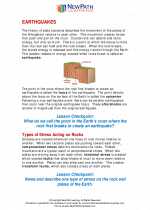
 Activity Lesson
Activity Lesson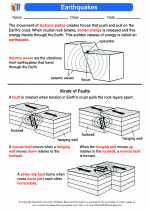
 Worksheet/Answer key
Worksheet/Answer key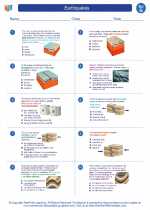
 Worksheet/Answer key
Worksheet/Answer key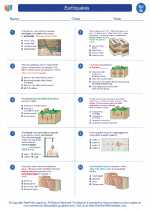
 Worksheet/Answer key
Worksheet/Answer key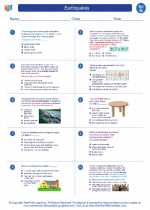
 Worksheet/Answer key
Worksheet/Answer key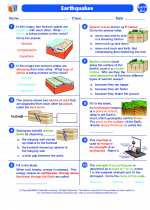
 Worksheet/Answer key
Worksheet/Answer key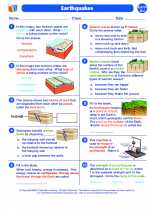
 Vocabulary/Answer key
Vocabulary/Answer key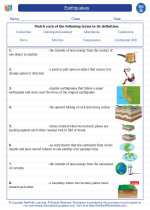
 Vocabulary/Answer key
Vocabulary/Answer key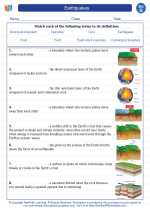
 Vocabulary/Answer key
Vocabulary/Answer key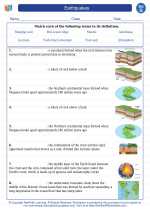
 Vocabulary/Answer key
Vocabulary/Answer key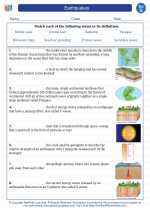
 Vocabulary/Answer key
Vocabulary/Answer key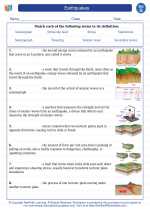
 Vocabulary/Answer key
Vocabulary/Answer key
 Vocabulary/Answer key
Vocabulary/Answer key